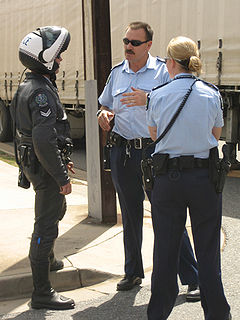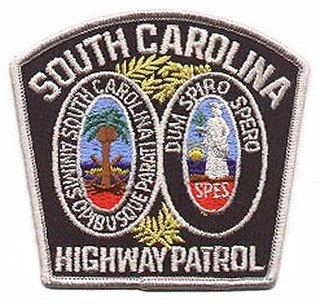Law enforcement in Illinois is complex with many overlapping jurisdictions related to the administrative divisions of Illinois.
The administrative divisions of Illinois are counties, townships, precincts, cities, towns, villages, and special-purpose districts. The basic subdivisions of Illinois are the 102 counties. Illinois has more units of local government than any other state—over 8,000 in all. The Constitution of 1970 created, for the first time in Illinois, a type of "home rule", which allows localities to govern themselves to a certain extent. Illinois also has several types of school districts and additional units of government that oversee many other functions.
At the state level, there are at least eleven law enforcement agencies. At the county level, there are sheriffs, forest preserve police and other specialized police forces. At the local level, most cities and many villages have municipal police forces, park district police forces, and even local specialized police forces. Many colleges also have their own campus police that are often sworn police officers.
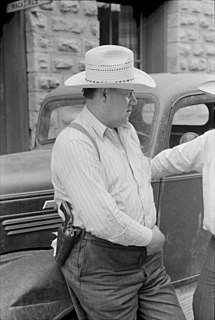
In the United States, a sheriff is an official in a county or independent city responsible for keeping the peace and enforcing the law. Unlike most officials in law enforcement in the United States, sheriffs are usually elected, although many states have state laws requiring that a person possess certain law enforcement qualifications before being able to run for the office. Elected sheriffs are accountable directly to the constitution of their state, the United States Constitution, statutes, and the citizens of their county.
Campus police or university police in the United States, Canada are often sworn police officers employed by a college or university to protect that private property of the campus and surrounding areas and the people who live, work, and visit it.
In 2000, Illinois was ranked 4th in the U.S. in the number of full-time sworn officers with 321 per 100,000 persons, behind Louisiana (415), New York (384), and New Jersey (345). [1] In this ranking, only New York had a higher total population than Illinois. Illinois is also near the top of most law enforcement numbers lists, such as number of agencies per state, number of agencies with special jurisdictions, and number of local police agencies. [1] Even taking into account that Illinois is the fifth most populous state, many of the ratios are higher than more populated states.
A law enforcement officer (LEO), or peace officer in North American English, is a public-sector employee whose duties primarily involve the enforcement of laws. The phrase can include police officers, municipal law enforcement officers, special police officers, customs officers, state troopers, special agents, secret agents, special investigators, border patrol officers, immigration officers, court officers, probation officers, parole officers, arson investigators, auxiliary officers, game wardens, sheriffs, constables, corrections, marshals, deputies, detention officers, correction officers, and public safety officers. Security guards are civilians and therefore not law enforcement officers, unless they have been granted powers to enforce particular laws, such as those accredited under a community safety accreditation scheme such as a Security Police Officer.
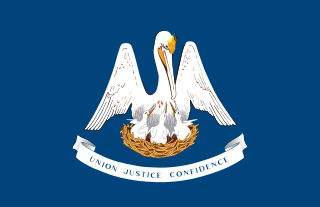
Louisiana is a state in the Deep South region of the South Central United States. It is the 31st most extensive and the 25th most populous of the 50 United States. Louisiana is bordered by the state of Texas to the west, Arkansas to the north, Mississippi to the east, and the Gulf of Mexico to the south. A large part of its eastern boundary is demarcated by the Mississippi River. Louisiana is the only U.S. state with political subdivisions termed parishes, which are equivalent to counties. The state's capital is Baton Rouge, and its largest city is New Orleans.
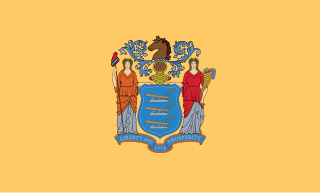
New Jersey is a state in the Mid-Atlantic and Northeastern regions of the United States. It is located on a peninsula, bordered on the north and east by the state of New York, particularly along the extent of the length of New York City on its western edge; on the east, southeast, and south by the Atlantic Ocean; on the west by the Delaware River and Pennsylvania; and on the southwest by the Delaware Bay and Delaware. New Jersey is the fourth-smallest state by area but the 11th-most populous, with 9 million residents as of 2017, and the most densely populated of the 50 U.S. states; its biggest city is Newark. New Jersey lies completely within the combined statistical areas of New York City and Philadelphia. New Jersey was the second-wealthiest U.S. state by median household income as of 2017.

